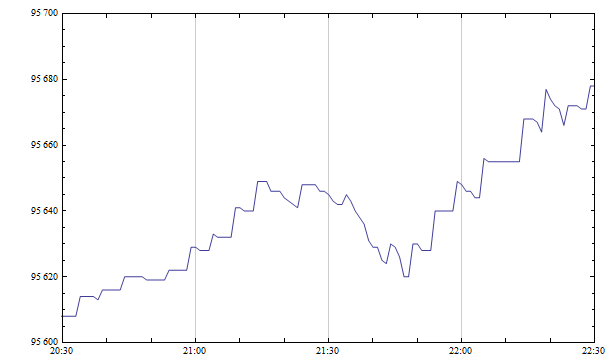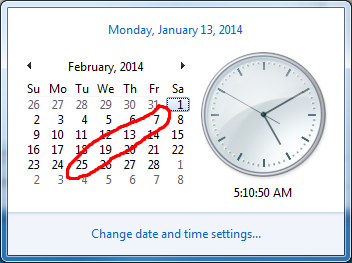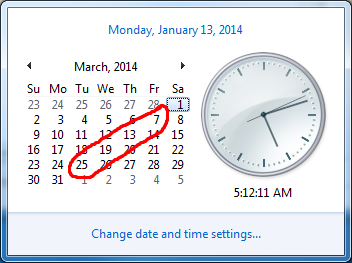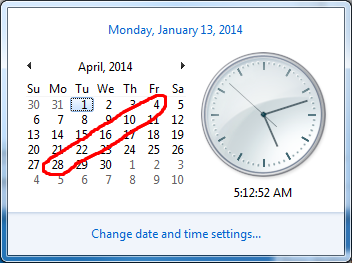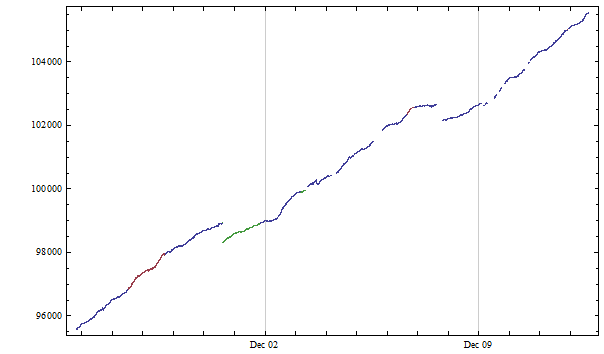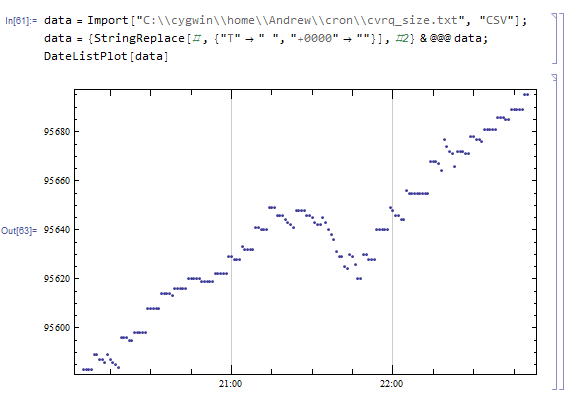This answer is left here for historic reasons but is no longer maintained. For an up to date status say hi in the SOCVR room or check our Tour and FAQ.
Next Meetup
3,000,000 close vote reviews celebration, December 19th, 17:00 -18:00 UTC
bring your comics, haiku's, comments to celebrate your and our moderation effort
Keep track of the CVQ
Register for regular events here
FAQ
Visit our extended explanation
Credits
Thanks to many for making these events possible and keeping them going: (in alphabetical order) @bjb568, @codemagic, @crypticツ, @Davidism, @DennisMeng, @Dukeling, @easwee, @Emracool, @GabrielePetronella, @godel9, @gunr2171, @HamZa, @hichris123, @JanDvorak, @JonClements, @joseph-quinsey, @OGHaza, @pnuts, @ProgramFox @Qantas94Heavy, @mehow, @rene, @RichardTingle, @Sam, @TGMCians, @TravisJ, @Undo, @user00000000, @Wayne-Conrad, @WouterJ.
Please don't hesitate to leave a message in chat if I've inadvertently left you out of this list!
Announcements
May 26th, 2014. "Life" happened and I've been taking a break from SO. I'm indebted to @rene et al for dutifully and cheerily keeping the effort going. This will be my last update on this thread, with an updated plot of the size of the close votes review queue (click for larger resolution):
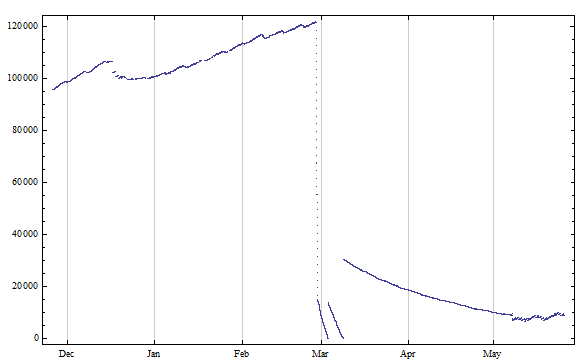
Jan 15, 2014. The meetup time has been changed to 21:00 UTC (4:00pm EST) henceforth. Also, some fancy graphs coming up, based on data collected so far—
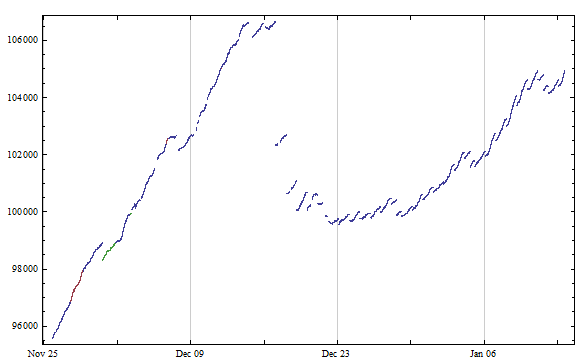
Dec 22, 2013. Moved cron job to a Linode. Now tracking all 3 numbers found on the stats page (as opposed to just current queue size). Planning to make CSV files available to public in 6-8 weeks.
Tracking
I've been tracking the size of the close votes review queue with a makeshift cron job.
#
# crontab
#
* * * * * /home/andrew/cron/PollCVRQ.sh
#
# PollCVRQ.sh
#
curl https://stackoverflow.com/review
| grep dashboard-num
| head -1
| sed 's/^.*<div class="dashboard-num" title="\([^"]\+\)".*$/\1/'
| sed 's/,//g'
| sed 's/^/'`date +%s`',/'
>> /home/andrew/cron/cvrq-primary-epoch.csv
This outputs:
1387381921,100825
1387381981,100830
1387382041,100830
1387382101,100830
1387382161,100826
For details on running this on Windows/Cygwin, see this thread, but for the love of all things holy do not use the code there—I used ISO-8601 thinking it was the international standard of time formats—not realizing what a nightmare it was to convert to and from other formats, especially with timezones involved. The above code uses the good ol' seconds-since-epoch (sample output below).
And here's the plot as of Dec 18, 2013. The intermittent drops are due to a weekly task that deletes old, abandoned questions. The crazy drops of late are due to having fixed some technical difficulties with the expiration of close votes—which, I hope, might render these chat events obsolete :-)
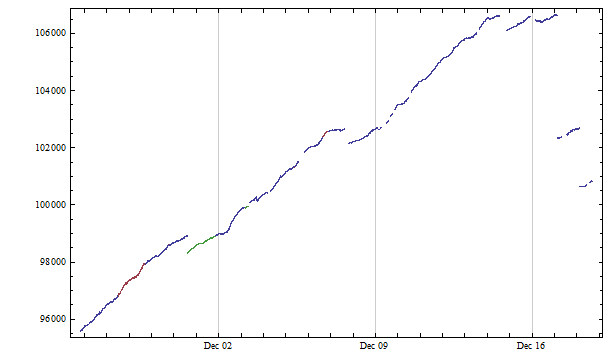
For those with Mathematica who wish to play with this data themselves, ping me in chat and I'll upload my latest data to this directory. (I didn't take data collection too seriously, else I'd have run the script on a server. @Emracool generously supplied me with a ton of missing data—and I was able to fill some other gaps with data collected on my roommate's computer.) The script previously formatted time in ISO-8601 (a huge mistake), but now uses seconds-since-epoch. The following Mathematica code includes functions for importing in either time format, and plots all datasets.
CVRQImportISO8601[path_, offset_: 0] := (
data = Import[path];
data = {StringReplacePart[#, {" ", ""}, {{11, 11}, {-5, -1}}], #2} & @@@ data;
data = {DatePlus[#, offset/24], #2} & @@@ data;
data
);
CVRQImportEpoch[path_] := (
data = Import[path];
data = {AbsoluteTime[{1970, 1, 1, 0, 0, 0}] + #, #2} & @@@ data;
data
);
primaryOld = CVRQImportISO8601["C:\\cygwin\\home\\Andrew\\cron\\cvrq-primary-iso8601.csv"];
primaryNew = CVRQImportEpoch["C:\\cygwin\\home\\Andrew\\cron\\cvrq-primary-epoch.csv"];
secondaryEST = CVRQImportISO8601["C:\\cygwin\\home\\Andrew\\cron\\cvrq-secondary-iso8601.csv", 3];
secondaryPST = CVRQImportISO8601["C:\\cygwin\\home\\Andrew\\cron\\cvrq-secondary-iso8601-offset.csv"];
emracool = CVRQImportEpoch["C:\\cygwin\\home\\Andrew\\cron\\cvrq-emracool-epoch.csv"];
styles = {
{ColorData[1, 1], PointSize@Tiny},
{ColorData[1, 8], PointSize@Tiny},
{ColorData[1, 15], PointSize@Tiny}
};
DateListPlot[
{emracool, secondaryPST, secondaryEST, primaryNew, primaryOld},
PlotStyle -> {styles[[2]], styles[[3]], styles[[3]], styles[[1]], styles[[1]]},
ImageSize -> {GoldenRatio*360, 360}
]
Finally, an additional function for zooming in on a segment of the plot:
CVRQZoom[data_, start_, end_, low_, high_] := DateListPlot[
data,
PlotRange -> {{start, end}, {low, high}},
PlotStyle -> {PointSize@Tiny},
ImageSize -> {GoldenRatio*360, 360},
Joined -> True
];
CVRQZoom[{primaryOld}, "25 Nov 2013 20:30:00", "25 Nov 2013 22:30:00", 95600, 95700]
